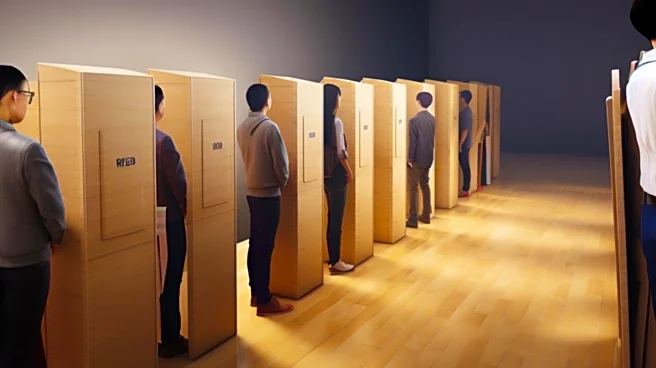What's Happening?
The Louvre Museum in Paris was forced to close following a daring daytime heist where eight priceless pieces of jewelry were stolen. The theft occurred on Sunday, with thieves managing to escape in just four minutes. One of the stolen items was found
outside the museum, dropped during the escape. French police have sealed off the entrance as the search for the remaining items continues. This incident has raised significant concerns about the security measures at one of the world's most famous cultural institutions.
Why It's Important?
The theft at the Louvre highlights vulnerabilities in security at major cultural institutions, which could have broader implications for museums worldwide. Such incidents can deter tourism and affect the reputation of these institutions, leading to potential financial losses. The heist also underscores the need for enhanced security protocols to protect valuable artifacts. As museums are key attractions in the cultural and tourism sectors, ensuring their safety is crucial for maintaining public trust and interest.
What's Next?
The Louvre Museum is expected to review and possibly overhaul its security measures to prevent future incidents. French authorities are likely to intensify their investigation to recover the stolen items and apprehend the culprits. This event may prompt other museums globally to reassess their security strategies, potentially leading to increased investment in advanced security technologies and personnel training.
Beyond the Headlines
The heist at the Louvre could lead to discussions about the ethical responsibilities of museums in safeguarding cultural heritage. It may also spark debates on the balance between accessibility and security in public spaces. Long-term, this incident could influence how museums design their security systems, integrating more sophisticated surveillance and response mechanisms.


















